- Home
- Aimée Thurlo
Grave Consequences Page 2
Grave Consequences Read online
Page 2
“Not even close, Detective. You want to go into our office for the interviews?” Charlie guessed.
DuPree nodded. “But let’s all enter through the back.” He turned to the other officers. “Block off the sidewalk from here to there,” he said, pointing, “keep civilians from picking up shell casings as souvenirs, and don’t step in the blood trail,” he added. “And warn the crime team to watch their step before they enter.”
* * *
A few minutes later, Detective DuPree gestured to Ruth and Jake, who were standing in the doorway of the secure storeroom. “I’ll interview each of you, but individually, so please don’t talk back and forth about this until I’m done. I need your personal responses, not something colored by conversation. I’ll start with Charlie. You three”—he gestured from Jake and Ruth to Gordon—“wait in the storeroom until it’s your turn.
“Let’s go, Charlie.” DuPree nodded toward the office door.
Charlie led the way in, DuPree closing the door behind them. Charlie reached for his coffee mug, an almost automatic response whenever he entered the work space.
“Pour me a cup too, if you don’t mind,” DuPree said, grabbing a foam cup from a small stack on the windowsill and handing it to Charlie before sitting down on Gordon’s desk chair.
Charlie poured the coffee, taking his time to avoid spilling the hot brew. His hand was shaking. Grinning weakly, he handed the detective the coffee before taking his own seat at the other desk.
“Good to see that you’re bothered by all this,” DuPree said, taking a sip.
“Why is that?” Charlie asked, looking down at his hand, consciously trying to steady the mug, and finally succeeding.
“To me, that shake in your hand suggests acts of defense, not aggression, which may help toward clearing you from possible criminal charges. Not that I expect any. But just in case I’m wrong, have you ever had any PTSD symptoms that generate anger or hostility or interfere with your ability to deal with people, or yourself?”
“I’ve gone through some guilt and anxiety in the past, more so in the first year stateside, but never any unjustified anger or aggression. I’m not depressed, and I pretty much get along with my friends and family. Lately, it’s just a bad dream once in a while. I’m good.” Charlie shrugged.
“Okay, so now I’m going to record your interview.” DuPree reached into his pocket and brought out a digital recorder the size of a pack of cigarettes. “First interview with Charles Henry, owner of the FOB Pawn shop,” the detective announced, then gave the date and time. “Start from the beginning, Charlie.”
Charlie nodded. “Yesterday, a Navajo woman in her mid-twenties came in and pawned an expensive squash blossom necklace. I handled the transaction and obtained a copy of the woman’s driver’s license. After the customer left I took a photo of the necklace and faxed a copy to the APD stolen property division, then put the paperwork on file. It’s standard practice here. Then Jake, one of my employees, locked away the necklace.”
“I’ll need a copy of those records, and her name. Go on.”
“This morning, a Navajo man in his late teens or early twenties came in and asked for the necklace, offering to pay interest and whatever Lola—the woman—owed,” Charlie continued. “The guy said Lola was his girlfriend and she needed the necklace back, but couldn’t come in herself. He didn’t have the claim ticket so I told him I couldn’t hand it over. That’s our policy.”
DuPree nodded. “Then what?”
“He got pissed, backed down when I gave him the look, then took off.”
“What happened this afternoon?”
“The same man came back with two armed men about his age. They were wearing ski masks and packing handguns and that Bushmaster. We saw what was coming via the outside camera. By then, Gordon and I were armed.”
“They walked into an ambush?”
“It didn’t have to turn out that way. When the man with the rifle brought it out, his finger on the trigger, Gordon yelled for them to put down their weapons. That’s when the guy started shooting. We immediately returned fire and the rifleman went down. Shots were exchanged and I hit one of the other shooters. One of them picked up the rifle and pinned us down long enough for them to make it back outside. They fled down the sidewalk toward the grocery, grabbing a woman hostage who just happened to be in their path. We followed. The woman managed to break free and the two fled into the laundry at the end of the street. I pursued and Gordon covered the outside, but they managed to get away.”
“Okay, now that I have the framework, let’s get to the details,” DuPree said, leaning back in his chair.
* * *
DuPree was a competent detective, and over an hour had passed since Charlie had been interviewed the first time. Through the clear partition of the office, Charlie could see the crime scene people and the medical investigator going through their routine. Ruth and Jake had already been allowed to leave for the day, and Gordon was in the storage room, nearby but out of the way.
“So, Charlie, now that I’ve got a clear view from everyone regarding the sequence of events after the three men entered the shop, tell me again about their first visit. The Navajo guy, the one you saw face-to-face, was alone, right?” DuPree reminded.
“At least he came into the shop alone. We never checked back at the outside camera feed, though you’ll want to verify that when you survey the surveillance coverage. I was working the front counter alone when he stepped inside, looked around for a moment, then came over. He gave me a name, Lola Tso, and said the young lady was his girlfriend. Said she’d pawned a turquoise squash blossom yesterday and that she’d asked him to come over, pay the loan fee and interest, and get the necklace back.”
“Then what happened?”
Charlie was tired now, the adrenaline had faded after the shooting and chase, but he wanted to be clear and accurate, so he concentrated on every detail.
“Like I said before, I asked him for the claim ticket, stating that normally we only settled pawn agreements with the original client. However, if he had the legitimate claim ticket and some form of acceptable identification, I could legally complete the transaction.”
“But he didn’t have the ticket?”
“No, he said she’d misplaced it. He insisted that his girlfriend had to have it back because it was a family heirloom and she’d catch hell if her mother found out she’d pawned it,” Charlie explained.
“Then what?”
“When I refused to hand it over he got pissed. After a moment he calmed down and suggested that because he and I were both Navajos, we understood about family and clans and that things like the squash blossom had special meaning to us—things Anglos didn’t understand.”
“But no claim check, no squash blossom necklace? That’s what you told him.”
“Yeah, but then I explained that if he brought in his girlfriend, and she was the same person who pawned the piece, I could deal with her. My hands were tied, I had my business reputation at stake. It’s important to honor the pawn agreement with the original client. Besides, according to Jake and Ruth, the squash blossom was the work of one of the most famous Navajo silversmiths, a guy named Cordell Buck. He was killed outside a tribal casino just last month. The necklace has increased in value now.”
DuPree nodded. “Your people verified that in their statements. Tell me again how the alleged boyfriend reacted.”
“For a second I think he considered taking a swing at me. Then he turned around and cussed his way out the door.”
“According to the others, you later warned them that the guy would probably be back, either with the girl or looking for a fight. That’s the way it went down?” DuPree asked.
“Yeah, pretty much. I told Ruth that she could go home early today, but she said this was her job and she’d stand with us,” Charlie said.
“Yeah, that woman’s got a lot of character—and brave as hell after all she’s gone through,” DuPree added.
Charlie nodded. Ev
eryone on the staff, and especially Detective DuPree, knew about Ruth’s past, and respected her for what she’d accomplished. He was also one of the few who knew who she really was, and the secrets she was still keeping.
“I asked the same question to everyone, so now I’m asking you. You’ve never had any dealings with the deceased shooter, Mario Savaadra?”
“No,” Charlie replied. He didn’t enjoy hearing the name of the man he and Gordon had killed inside the shop. He was no traditionalist, but there was a Navajo taboo that cautioned against naming the dead. During his military service he’d seen way too many bodies and he lived with that every day and night. But today it had again become all too personal.
“Well, at least everyone on the staff is in agreement there. Jake ran through your computer records and we didn’t get any hits on the deceased there either,” DuPree admitted.
“The copies of the surveillance feed given to the crime scene unit go back six months. If your people find any faces that match that of the dead man, so be it, but we never recall doing business with him, at least since Gordon and I bought the place.”
“Your staff has a good memory for faces, so I’m not going in that direction, at least not yet.”
“Then are we about done here?” Charlie asked, seeing DuPree closing up his notebook.
“I’m done,” the detective said, standing and looking out through the Plexiglas office window at the three techs in white lab coats still in the shop. “And it looks like they’re stowing away their gear. But before you start cleaning up tonight, Charlie, you’ll need to take a lot of photos of the damage,” he said, looking over at the splintered wood frame where a bullet had passed through the office. “It doesn’t look like this room suffered any damage beyond the bullet strikes. They missed your electronics and the Plexiglas partitions, too. I could use your luck. How do you do it?”
Charlie recalled that old line about “luck favoring the prepared mind.” If he and Gordon were so damned lucky, how come people had been shooting at them for the last ten years? When was it ever going to stop?
“Just clean living, Detective DuPree,” Charlie said, standing and reaching over for his camera. He always took photos of expensive or interesting looking pawn, so he kept it handy, but his insurance agent would need the details. The next few hours he and Gordon were going to be busy.
“Also, you and Sweeney can expect a visit from the D.A.’s office with more questions about today, especially after your past history with the department. I’m betting you’ll both be cleared on the shooting, especially once their people view the video, but they may have some questions about your pursuit of the shooters and the hostage situation. On your side, however, is the fact that you rescued Mrs. Tamura and she was unharmed. With your military records and the favorable outcomes of the incidents last year, I doubt you’ll have any trouble.”
Charlie’s phone vibrated just then, and he pulled it out of his pocket to look at the display. “How the hell did he find out about this so soon?” Charlie muttered, reading the text message.
DuPree, at the door, turned, the question on his lips.
“It’s my brother, Alfred, a tribal cop. He’s on his way here now,” Charlie pointed out. “Al says he’s on the case.”
“Oh, shit. There’s two of you?” DuPree responded. Then he looked down at Charlie’s phone. “What the hell? This is my case.”
* * *
Charlie’s brother, Al, an officer in the tribal police for nearly a decade, appeared at the back door of the pawnshop a half hour later. DuPree had left, headed downtown to raise hell with his captain.
“What’s with the retired gangbanger look, Al?” Charlie asked, barely recognizing his shaven-headed older brother. Alfred was clad in a baggy, long-sleeved T-shirt with some indiscernible words scrawled across the chest. His pants were dark brown, baggy as well, and his shoes were almost normal—for a working man in the 1950s.
“Like your boots, Al. Get them at the thrift store?”
“Yeah. Engineer boots are hard to find these days. I’m working to fit in with a rougher crowd, which is why I had to approach from the alley, Chuckie.”
Charlie resisted the urge to react to his brother’s favorite means of antagonism. They’d teased each other with nicknames all the way through high school. “Then don’t be standing around outside. Come on in, bro.”
“Hey, Gordon,” Al said, stepping inside and reaching out his hand to shake, something traditional Navajos still did only reluctantly. Al, like Charlie, was anything but traditional. Gordon had met Charlie’s brother a few years ago.
“Good to see you again, Al,” Gordon said, a smile on his face. “Shiny skull, huh? You working undercover?”
Al closed the door behind him, then ran his big hand across his bald head. “Yeah. After I heard what happened here today, I thought there might be a connection with my own investigation.”
“The Cordell Buck murder?” Charlie asked, waving his brother toward their small office. “The APD detective assigned to today’s incident was concerned about jurisdictional issues.”
“Yeah, there are several agencies involved in all this. When the silversmith’s name came up as the maker of the jewelry connected to this crime, I caught wind of it,” Al explained.
“So the necklace was taken when Buck was killed over by the tribal casino?” Gordon asked, taking a seat in one of the four chairs.
“No, and here’s where it gets creepy. When I got a look at the photo of the necklace you’d sent to APD on a stolen property query, I realized it matched another image I’d seen from the dead man’s own records. Mind if I have a look at the jewelry?” Al asked.
Charlie nodded to Gordon, who reached for a big manila envelope atop the in-basket of the double desk. “Detective DuPree also took a look, considering it was what the wannabe robbers had come for.”
Al opened the envelope, then brought out the airtight plastic zip-lock bag that contained the turquoise and silver necklace. It was a classic Southwest design—with Cordell’s custom look and personal mark stamped into the silver. Most silver jewelry of this type was kept in air- and moisture-sealed containers to reduce oxidation, often with a packet of silica gel.
He looked at it closely, not opening the bag, then brought a photo out of his shirt pocket and checked it as well. “This is the one. The spider matrix of the turquoise is a perfect match on every stone.”
“So is this squash blossom creepy ’cause it belonged to a guy who’s dead now?” Gordon asked.
Al shook his head. “No, and this is the detail that never made the news. This particular piece of jewelry was one of the dead man’s favorite works. He didn’t have it with him when he was killed—he had it on him when he was buried.”
Charlie looked over at Gordon, who whistled softly. “We’re talking grave robbing here, brother?”
Al nodded. “About the worst thing a Navajo can do,” he answered softly.
* * *
It was close to ten at night when the three of them arrived at the remote graveyard on a section of the Eastern Navajo Nation twenty miles west of Albuquerque and south of the To’hajiilee Chapter House.
Charlie was driving his dark-purple Charger, his most valued possession, while Gordon and Al chatted mostly about his and Charlie’s years growing up in Shiprock. As usual, most of the stories were about when Al had bested Charlie at baseball, basketball, or football. The fact that Al was bigger, stronger, and older never seemed to come up, Charlie observed, but he joined in with the laughter.
As he drove, Charlie stayed out of the conversation, recalling his and Al’s more recent history. The last time he and Al had been together for more than an hour they’d almost come to blows. Al had just been demoted from sergeant down to patrol officer. He’d been suspended for drinking and was having family problems. Al’s wife, Nedra, had been forced to go back to work as an office temp and Al was becoming borderline abusive. Even their two boys were avoiding him at home.
Charlie h
ad tried to talk some sense into Al, but his efforts had backfired. Charlie walked away after that and they’d rarely spoken since. Now Al was acting like nothing had ever happened, and Charlie wondered if his brother was finally coming out of his downward slide.
Suddenly Gordon said something that brought Charlie back into the present.
“So, are we checking for evidence that this grave robbing was the work of thieves, not skin … you-know-whats?” Gordon said, avoiding the mention of “skinwalkers,” Navajo witches.
He’d learned a lot from Charlie over the years about things like this. Mentioning skinwalkers—real people who were either evil or crazy—was said to attract them. Having grown up in a poor neighborhood in Denver, Gordon was highly respectful around other cultures—that was, unless they disrespected him. In those situations, he showed no mercy whatsoever.
“From what I’ve gathered, gossip mostly, the locals out here think the dead silversmith was robbed by the evil ones,” Al said softly. “Personal items belonging to the dead are valuable to the Navajo witches. But I want to take a look myself. I checked with a hataalii, a medicine man, and he says it was more likely a greedy Anglo. But he wouldn’t say why. It turns out that at least one of the men who came looking for that squash blossom at your shop is linked to a group of carjackers. Some smart-ass cop calls them the Alone Arrangers. I had to look for myself.”
“Wait until the TV stations hear that name.”
Al continued. “Which is why officers actually involved in the investigation have renamed them the Night Crew. They’ve been carjacking individuals mostly in the Four Corners area, targeting people caught out alone after dark driving newer model SUVs and such. They rough up and rob their victims, then leave them along the highway. I’ve been trying to worm my way into that gang ever since I was assigned to track down Buck’s killer. The man who died in your shop today—I had some beers with him two days ago.”
“Think the guy we shot was the one who actually robbed and killed the silversmith?” Charlie asked as they climbed out of the Charger.

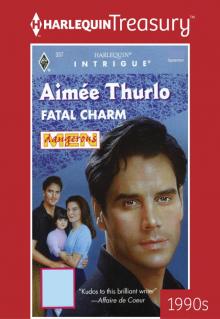 Fatal Charm
Fatal Charm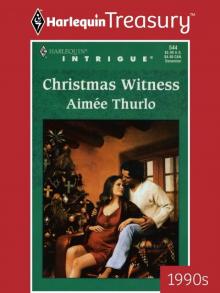 Christmas Witness
Christmas Witness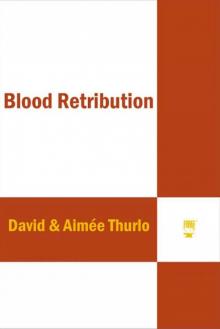 Blood Retribution
Blood Retribution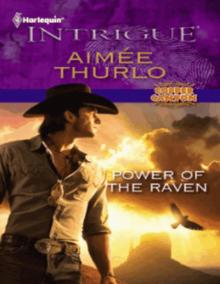 Power of the Raven
Power of the Raven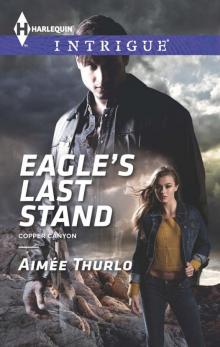 Eagle's Last Stand
Eagle's Last Stand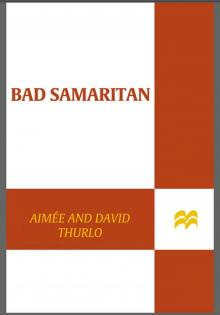 Bad Samaritan
Bad Samaritan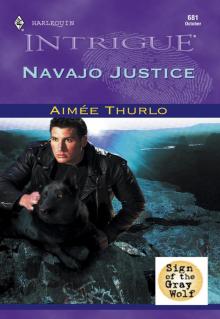 Navajo Justice
Navajo Justice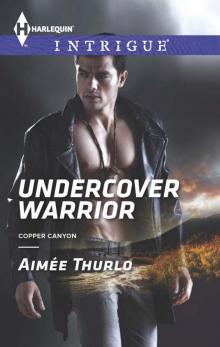 Undercover Warrior
Undercover Warrior Wind Spirit: An Ella Clah Novel (Ella Clah Novels)
Wind Spirit: An Ella Clah Novel (Ella Clah Novels)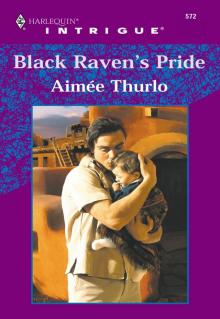 Black Raven's Pride
Black Raven's Pride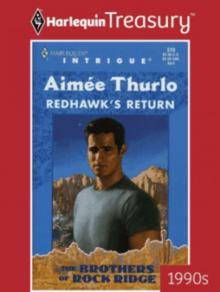 Redhawk's Return
Redhawk's Return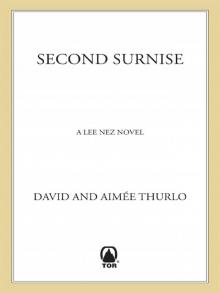 Second Sunrise
Second Sunrise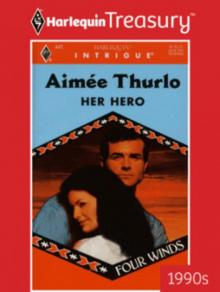 Her Hero
Her Hero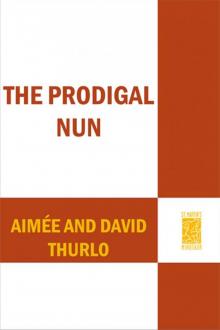 The Prodigal Nun
The Prodigal Nun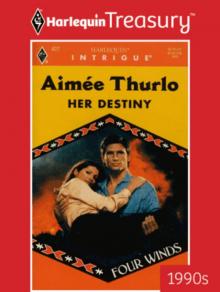 Her Destiny
Her Destiny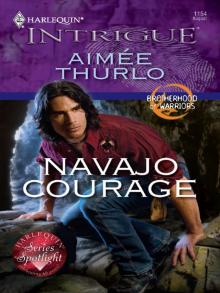 Navajo Courage
Navajo Courage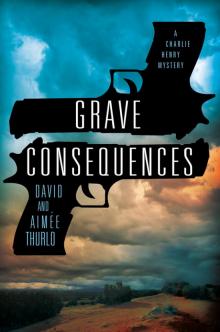 Grave Consequences
Grave Consequences Homespun Christmas
Homespun Christmas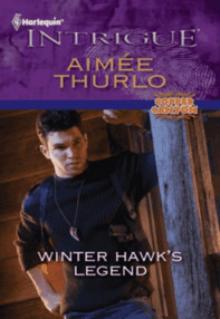 Winter Hawk's Legend
Winter Hawk's Legend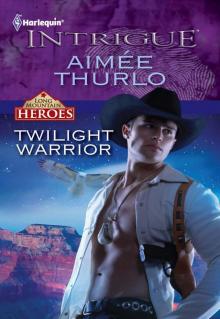 Twilight Warrior
Twilight Warrior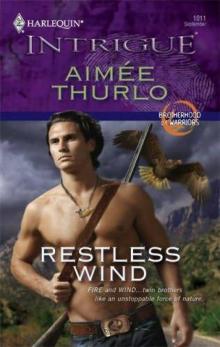 Restless Wind
Restless Wind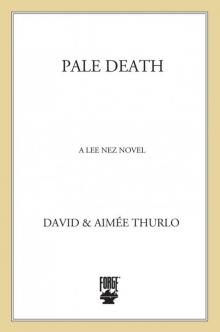 Pale Death
Pale Death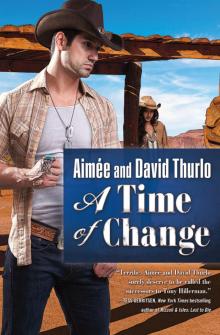 A Time of Change
A Time of Change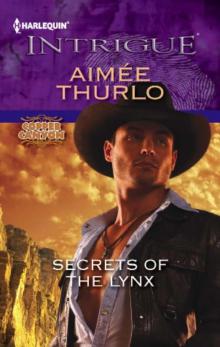 Secrets of the Lynx
Secrets of the Lynx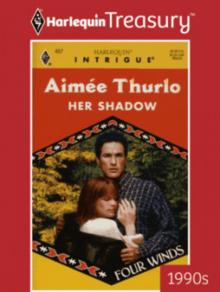 Her Shadow
Her Shadow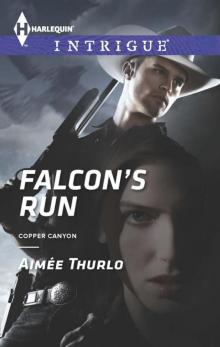 Falcon's Run
Falcon's Run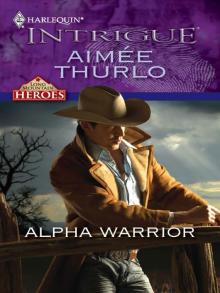 Alpha Warrior
Alpha Warrior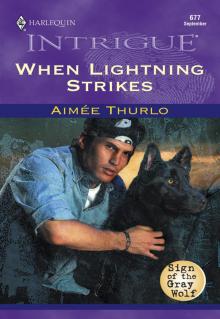 When Lightning Strikes
When Lightning Strikes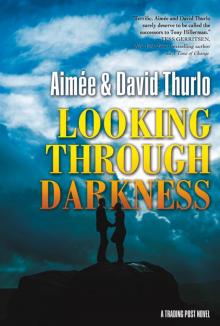 Looking Through Darkness
Looking Through Darkness